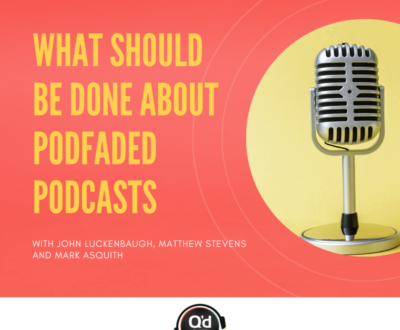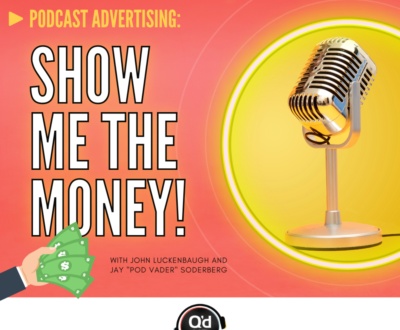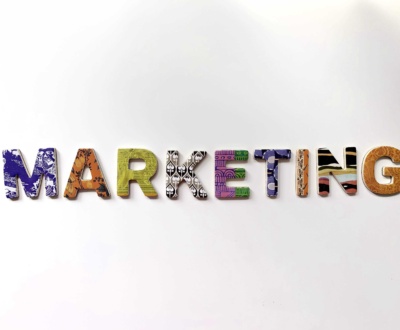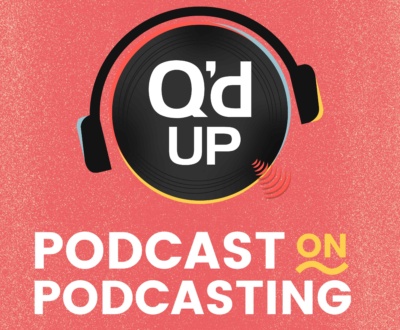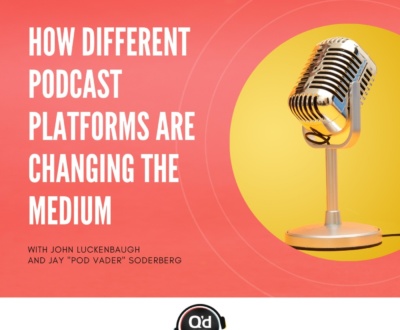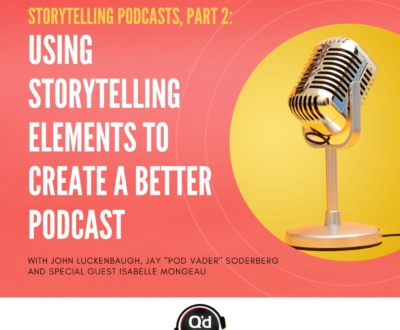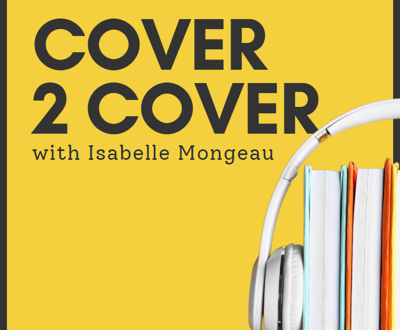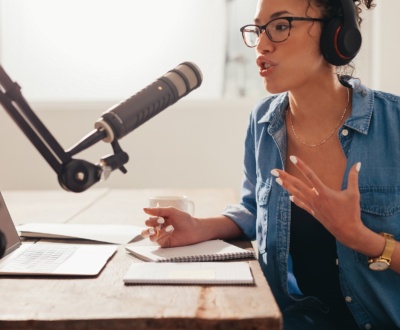Interview Podcasts: The Pros And Cons Of Starting Your Own
- April 20, 2022
- Podcasting, Q'd Up Podcast
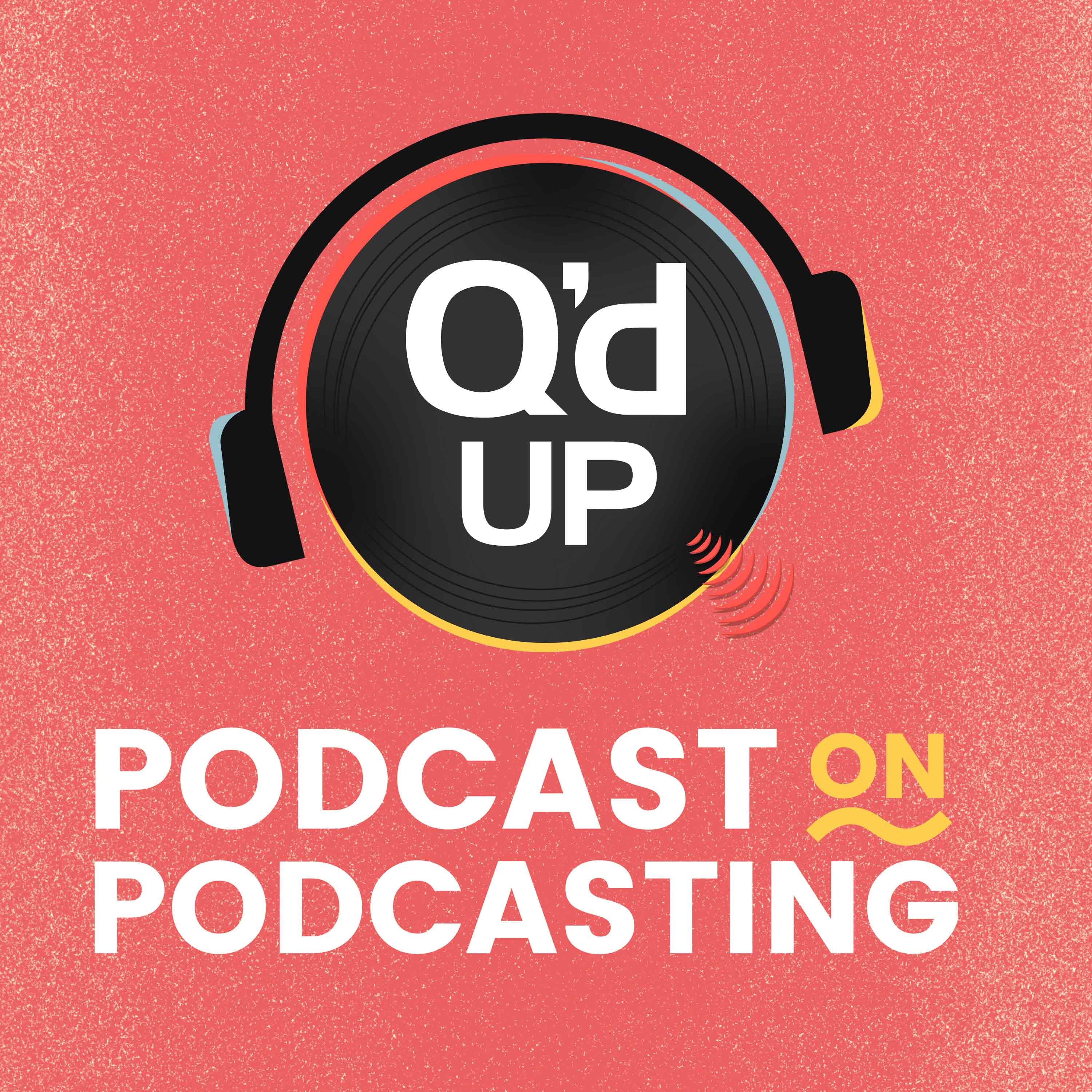
As you begin to think about creating a podcast for yourself or your business, you need to figure out what style you want your podcast to have. On this episode of the Q’d Up Podcast on Podcasting, we’re going to be discussing why an interview podcast should be on your radar.
Join host Matthew Stevens as he takes a look at what an interview podcast entails, the benefits of having one, and the unique challenges you’ll likely face along the way. If you’re contemplating starting an interview podcast, this is a must-listen episode to learn what’s needed to make it great.
Why You Should Start An Interview Podcast
Follow Q’d Up:
Listen to the Q’d Up Podcast on Podcasting:
Episode transcript:
Podcasting has exploded in popularity over the last few years, both in terms of those listening and those creating podcasts. Not only are more independent creators making engaging content but businesses are getting in on the fun as well as they see the potential benefits.
But if you’re just beginning to think about podcasting for your organization, there is a ton of information out there, which can be a little overwhelming to say the least. While naming your podcast and figuring out who will host it are some of the fun aspects of launching your podcast, you first need to think about what style of podcast you’re going to have.
On this episode of the Q’d Up Podcast on Podcasting, we’re going to sell the idea of an interview podcast. Why an interview podcast might make sense for you, what unique benefits they have, and even some of the unique difficulties you’ll have to plan for.
Let’s get into it.
Interview podcasts are incredibly popular right now and it’s easy to see why. People simply love learning about specific topics from qualified professionals. And with an interview podcast, they can get exactly that. But for the podcaster or the business behind it, interview podcasts can be pretty special as well.
Some of the biggest podcasts in the world right now are interviews, showing the true power the medium and style can have. Love him or hate him, most people know of Joe Rogan at this point and likely know him more as a podcaster than as an actor in the sitcom NewsRadio in the 90s, as a comedian, or even as a UFC commentator. NPR has found new popularity thanks to its fantastic podcasts, which often incorporate interviews throughout. In fact, in 2020 NPR was on track to make more money from its podcast lineup than its conventional radio shows.
If you’re not already enticed just from hearing that, there are plenty of other reasons to consider using the interview style for your podcast. After our quick sponsor break, we’ll dive headfirst into them.
Interview podcasts offer the opportunity to network in a unique and meaningful way. Everyone is on LinkedIn now and we’re all getting a million messages from people trying to “connect.” But sitting down with someone, talking to them directly, showing you’ve done your research, and potentially increasing their reach is ALWAYS going to be better. We have several clients here at Q’d Up Audio that use their podcasts for this exact reason and have seen fantastic results from it.
Interviews can also be a great way of increasing your reach as a podcaster and as a podcast. Most guests share their appearance with their own following, potentially opening your podcast up to new listeners with each and every episode.
The other great thing about interview podcasts is that you can touch on a wide range of topics, if you want. No matter if you want to stick to a specific niche or you’re willing to be broader in what your podcast covers, you can get experts that can dive further into that topic. And as long as you’re able to book actual experts, your podcast will naturally get a unique authority as a result.
Interview podcasts have the potential to be easier to produce than other styles. Without the need for a full script and a ton of sound design, interview podcasts don’t necessarily require a ton of production help to be good.
But look, I’d be lying to you if I said interview podcasts were perfect and didn’t come with some unique challenges. If you’re seriously considering making your podcast an interview one, you need to know what’s likely to come up if you want to make a quality finished product.
And though interview podcasts CAN be easier to produce, you’re relying primarily on your ability as an interviewer and the ability of your guest to be entertaining. If your guest is lackluster, your episode isn’t going to be good. If you’re not a very good interviewer, your episode isn’t going to be good. No amount of sound design can make up for a bad interview and it only takes 1 bad interview to lose listeners.
Really, your interview podcast lives and dies with your preparation. Our next episode will go into far more detail about interview prep and I’ll teach you some of the things I’ve learned as a former journalist so you can be a better interviewer, so make sure you’ve subscribed so you get that episode when it drops. But the basic idea is that you need to research not only your topic but your guest before you’ve ever sat down at the microphone. You really can’t do too much research, but it takes a ton of time to do properly. So, though you may save time at the end of your production process, the beginning is going to involve a lot of work.
Scheduling is perhaps the biggest issue with interview podcasts. Not only are you potentially limited in the time you have to record an interview, but your guest also has a life and a packed schedule too. I can’t tell you the number of times podcasters haven’t been able to land a guest for an episode because of conflicting schedules.
You also can’t forget the sudden drop out too. Even if everything aligns and you get a date on the calendar to record, things come up and guests drop out at the last minute. If you’re hand-to-mouth on your production schedule, a last-minute cancelation could mean you don’t have an episode that week. That makes it imperative to be ahead on your schedule by several episodes or understand you might miss a release schedule, which will hurt your downloads for months afterward.
Finally, not everyone is cut out to interview or be interviewed. Like anything else, it’s a skill that has to be worked on. Even if you’re naturally the best interviewer that has ever been on mic, your guest might not be very engaging in the moment. One quick tip when booking guests is to not fall into the trap of believing that just because someone can talk your ear off means they’ll be a good guest — that’s bitten more than a few podcasters over the years as well.
Like all styles of podcasts, there are best-use situations for interviews and you shouldn’t jump into any style without first figuring out what your goals are. However, interview podcasts offer some pretty great and unique benefits that shouldn’t be ignored.
Now get out there and make something amazing!
Request a free quote
We offer high-quality production, distribution, and marketing for podcasts and audiobooks. Contact us today for a free, no obligation quote

